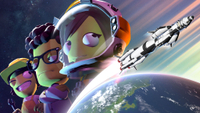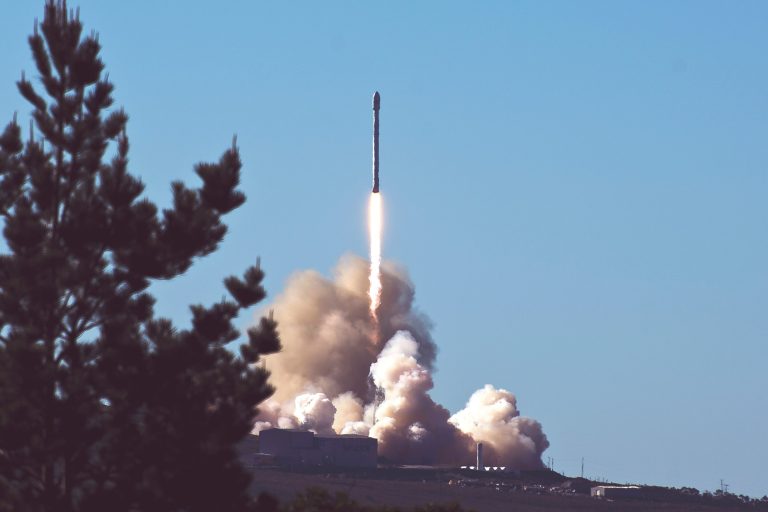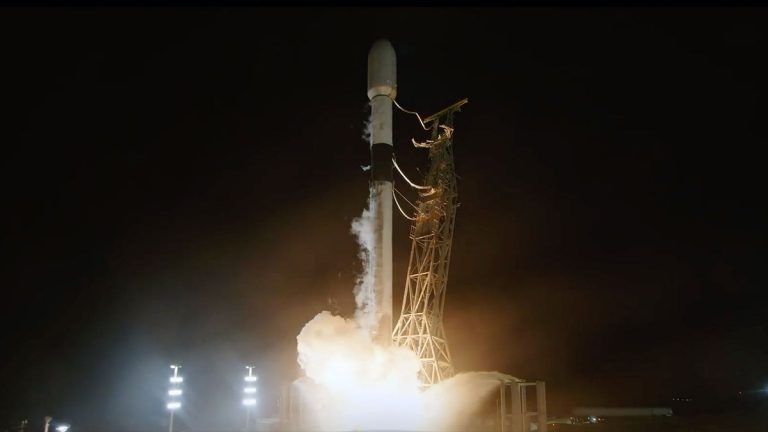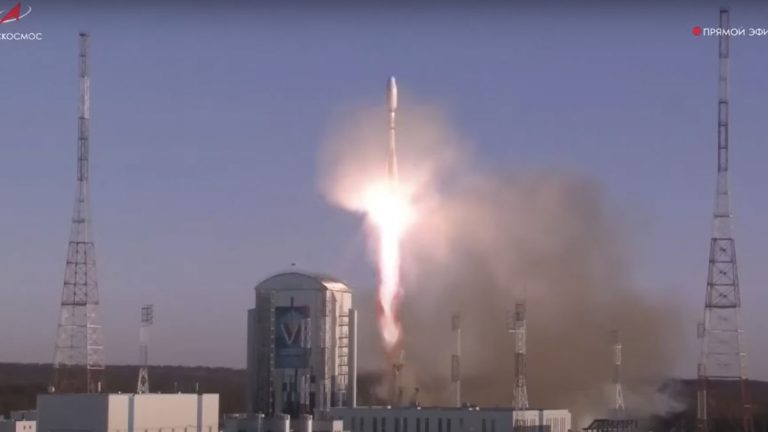
The sounds of Kerbal Space Program 2: How an emotional real-life rocket launch transformed the game (Image Credit: Space.com)
The new Kerbal Space Program 2 has real-life rocket audio in its launches.
KSP2 released in early access for PC gamers on Feb. 24 featuring numerous new features for fans of realistic space games, like an expanded tutorial system for newbie players, more rockets and more destinations. The early release doesn’t have all features yet but more are accruing in the coming weeks and months, KSP2 officials have said.
Kerbal Space Program 2’s (KSP2) audio director Howard Mostrom captured footage from a United Launch Alliance (ULA) Atlas V double satellite launch on Oct. 4, 2022. He re-engineered the sound on Earth for other locations in the game, like the moon or Mars, which have different atmospheres (or none at all).
Mostrom described the launch and even the fueling of the rocket to Space.com as “large and disruptive and loud,” adding that he enjoyed watching the workers at work on the pads. “There are so many interesting sounds happening, so I’m using a lot of those ambiences in-game on the launch pad. That itself was very, very compelling to me,” he said.
Read more: Kerbal Space Program 2 is here! Spark joy with exploding rockets today
Save 10% on Kerbal Space Program 2’s early access program and get a sneak peak at one of the most highly anticipated games of the year. It features more rockets, more exploring and an easier tutorial than the predecessor Kerbal Space Program that released in 2011.
” data-widget-price=”{“amount”:”44.99″,”amountWas”:”49.99″}” data-widget-type=”deal” data-render-type=”editorial”>
Like many rocket-watchers, Mostrom found that watching his first launch took years of attempts. Even the ULA launch, once confirmed, had to be delayed due to hurricane activity for about a week; he added.
Mostrom had to set up his microphones nearby the rocket about a day before the launch, and said he was working to get “as much of a dynamic range as possible.” The recording was accomplished in high-fidelity 32-bit resolution, with nine condenser microphones at the pad and another 14 more at other locations. The setup produced some 600 gigabytes of data that was compressed for in-game experiences.
Dealing with the inevitable technical issues, he said, “was pretty stressful, going through that process, while there’s all these surrounding timelines,” but the protection he put into the equipment worked well. He had wind filters and other coverings to stop the water spray, although he did have to clean everything by hand afterwards to avoid the kerosene (RP-1) smell lingering on the equipment.

Mostrom called the launch itself a life-changing experience, which he did his best to bring into the game: “It was so amazing. I don’t know how I wasn’t completely bawling, to be honest. It was very emotional. I mean, I didn’t even sleep the night before; there was so much on the line there and I couldn’t wait.”
ULA representatives and numerous other folks at the launch, he added, came up to him during the launch to talk about how much they loved the game. Inspiring the next generation was front in mind of the Kerbal staff, including Mostrom, as they developed the successor to the popular game that launched in 2011.
“I see it in my own family. I see my son loving rockets and rocket science. And I see my daughter having an interest in science and all this stuff just because of this game. It’s very, very humbling to see how influential this game can be to the science community and the world at large,” he said.
Elizabeth Howell is the co-author of “Why Am I Taller (opens in new tab)?” (ECW Press, 2022; with Canadian astronaut Dave Williams), a book about space medicine. Follow her on Twitter @howellspace (opens in new tab). Follow us on Twitter @Spacedotcom (opens in new tab) or Facebook (opens in new tab).









